On June 24, the same day Javier Milei arrived in Prague, the representatives of the self-proclaimed Free Republic of Liberland announced the opening of an office in the same city. Their invitation to the inauguration carried an image of the La Libertad Avanza leader, suggesting that he might be present at the event.
A few days earlier, during the ‘Cena de la libertad’ dinner in Madrid, the Spanish ambassador of this fantasy land, Pol Victoria, took a snapshot of himself with Argentina’s president. The “Liberlanders” were ecstatic. For the first time in their short history, a head of state knows who they are.
The backers of Liberland decided to take advantage of Milei’s European swing to gain visibility. Liberland is a kind of libertarian utopia. According to its short history, published on its official website, Liberland was founded on April 13, 2015, in an uninhabited territory of seven square kilometres located on the frontier between Croatia and Serbia.
The Spanish-language YouTube channel ‘Un mundo inmenso’ (“An immense world”), with more of an eye for political geography, narrates that on that day Czech politician Vít Jedlička arrived there with his girlfriend Jana Markovicova and a friend, declared the independence of the Free Republic of Liberland and was elected president.
The “colonists,” as the founders of Liberland call themselves, are tenacious defenders of the free market and private property – issues that are close to Milei’s heart. They believe that the state should dedicate itself only to defence, the maintenance of law and order and justice, proposing a country where tax collection is voluntary. Although the ideas of the Austrian School were always marginal in the academic and political worlds, its authors are the reference for most Liberlanders, who, like Argentina’s President, think that the state is the root of all evil.
No state in the world currently recognises Liberland as a country yet its defenders are enthused by the rise of Milei. Jedlička in fact says that he has visited Argentina twice, once before the elections and the other time to participate in an event at the Legislative Assembly. Furthermore, the representative of Liberland in Argentina, Nicolás Mateos, assures that representatives from the micronation have conversed with Foreign Minister Diana Mondino.
In dialogue with Perfil, Jedlička explains why President Milei is attracting worldwide attention and why it is music to his ears: “His discourse, especially at Davos, was on the button. Many people worldwide are waking up to the ideas represented by Javier Milei and Liberland.”
Between fantasy
and marketing
The Liberlanders overlap with Milei in more than one way. Not only do they defend libertarian ideas, they are also characterised by skilful handling of communications and marketing campaigns.
Indeed, although two members of Milei’s entourage in Europe denied to Perfil that a visit to the new Prague headquarters of Liberland was on the agenda, the organisers of the event toyed with the idea on the social networks until the very last moment.
No country in the world has established formal relations with Liberland. The closest they have come, as published by El Cronista, is creating a link with Somaliland, another self-proclaimed independent territory in 1991 with limited international recognition.
But despite those challenges, via popular chats and influences, Jedlička has gained the support of the far right in Spain and, in the United States, members of the Republican Party.
“People should live free from a state bureaucracy and excessive taxation,” maintained Jedlička in conversation. “It is possible to organise a state based on voluntary collaboration instead of state coercion.”
For the Liberlanders, Milei signified an enormous opportunity for expansion, especially online. The first time they paid attention to him was in 2019, when the economist — then still a television panellist — was presented at a convention dressed up as a superhero.
“I’m General Ancap,” says Milei in the video, referring to his “anarcho-capitalist” views. “I come from Liberland, a territory of seven square kilometres between Croatia and Serbia based on the principle of primitive human appropriation, a country where no taxes are paid, where individual liberties are defended with belief in the individual and where there is no place for collectivist sons of bitches who want to dump on our lives.”
In economic terms, Liberland seeks to promote the use of cryptocurrencies. Jedlička confessed that he wanted the territory to become a tax haven. By collecting no taxes, so that investments might enter, he explained. The problem, nevertheless, is that the territory lacks any financial or legal structure which might sustain that idea.
Liberland does not even have any inhabitants. In order to understand this libertarian fantasy, its legal situation and why there is no population today, you have to go back to the partition of ex-Yugoslavia in 1991 and, in particular, to when the boundary between Serbia and Croatia was drawn.
“The zone which is Liberland [is in] belonged to Serbia but remained on the Croatian side following partition. But if Croatia kept that zone, they would be accepting frontiers which they considered otherwise disadvantageous. So neither Serbia nor Croatia took over Liberland, which has remained unpopulated for two decades,” says the narrator in ‘Un mundo inmenso’ video explainer.
In his quest to create a libertarian country, Jedlička came across the small area and declared it terra nullius (a Latin term meaning “no man’s land” and used in International Law to refer to territories not claimed by any state). However, upon founding Liberland, the Croatian authorities began to take charge of the zone’s security.
To date, every time some Liberlander has tried to settle down there, they have been expelled by the security forces. Last year, for example, border police destroyed cabins which had been constructed.
These days the founders are erecting a town hall, trusting that the few people who spend time in the territory will be allowed to stay on there.
Link with Argentina
Although Jedlička has no domain over the territory, he offers passports to everybody who wants to form part of his country, whose motto is “Live and let live.” According to the “colonists,” they have received petitions for citizenship from practically every country in the world, including Argentina.
Nicolás Mateos is a young Argentine economist who learned of the existence of Liberland in 2017.
“We were in the middle of the Mauricio Macri government and I could already see Kirchnerism making a comeback into power and to tell the truth, I did not like that at all. I was thinking that there was no way politicians could dominate our lives and that there had to be somewhere in the world with no sovereignty, a no man’s land,” he told Perfil in an interview.
“I set about researching, finding out there were such territories in Egypt and the Antarctic, and then I found Liberland. I saw its flag and the principles they promote and I joined up,” he explained.
Mateos performs some kind of diplomatic role in Argentina for Liberland. In 2023 he had some conversations with libertarian party leaders and worked to build bridges with La Libertad Avanza. At the last LaBitconf forum, Argentina’s Bitcoin conference which was held last November 10-11 in Buenos Aires, he managed to bring about an exchange of words between Liberland’s “president” and Diana Mondino.
“Vit had been invited, so we got to know Diana in person and afterwards we had a private chat. A president may recognise a country by decree or diplomatic relations can begin to be established between Foreign Ministries. That is what we are trying. But we understand that the government has other priorities because Argentina has to recover,” said Mateos.
Argentina’s Foreign Ministry and the Presidency did not respond to enquiries about talks with representatives of Liberland.
According to Mateos, Pol Victoria has the most contact with Milei of all of Liberland’s leaders. It seems Argentina’s President read a book by the Spanish economist entitled El manifesto austrolibertario and their link began from there.
On his website Victoria presents himself as Christian, Greco-Romano-mediaeval, reactionary, romantic, Hispanic, libertarian, Austrian, polymicro-monarchist, revisionist and traditionalist.
In March, during an interview in Business Connection, he recounted a brief encounter with Milei and suggested to him that he open formal relations with Liberland, a country where he “would not have the problems” which the Argentine president has with his own country of Spain, which “is completely socialist.”
“We have the opportunity to start a country from scratch, libertarian from the beginning, from its roots,” said Victoria, celebrating the world’s “entrance into a new era of liberty.”
Mateos is attracted by the idea of a place with voluntary tax collection. The proposition of Liberland is that people only finance the projects they believe to be convenient, besides defending every citizen having the right to vote on every law promulgated.
“I’m an economist and if there is a vote on a health law, for example, and I don’t feel qualified to make a decision, I can ask somebody else to vote for me but I can take that power away from them within an hour when I so wish. I do not have to wait two years or for the end of a term,” he explained.
Based on the maxim that the individual and private property are above all else, Mateos rejects such basic ideas of the modern state as sovereignty: “The state always imposed itself and continues to do so day by day. The politicians are guided by their own business deals and their only incentive is to stay in power.”
* This article was originally published in Spanish.








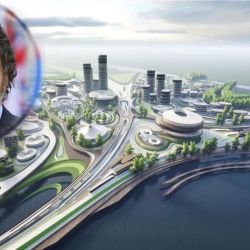
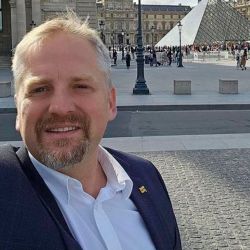
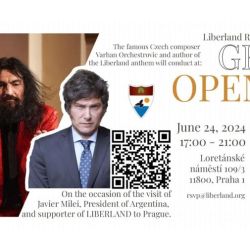
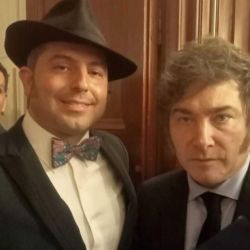
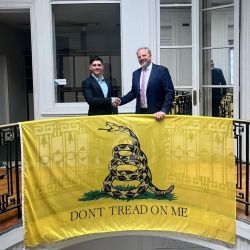








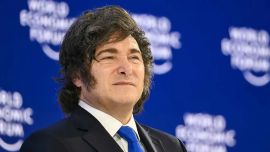
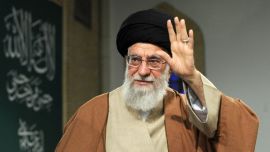
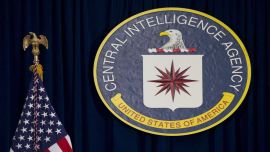
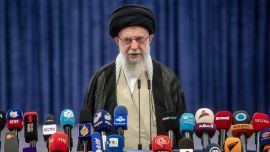
Comments